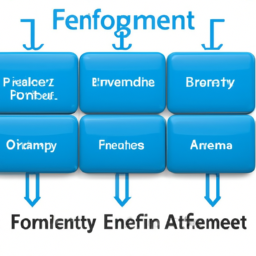Unveiling the Reality Behind Entity Framework: Navigating the Ups and Downs of Modern ORM Tools in Software Development
In the ever-evolving landscape of software development tools, Entity Framework, a popular ORM framework for .Net applications, has had its fair share of ups and downs. Despite promises of seamless data handling and automation, many developers have found themselves grappling with inconsistencies and frustrations when using Entity Framework.

The disillusionment with Entity Framework dates back over a decade, when Microsoft introduced it as a revolutionary way to manage data in .Net applications. Features like Lazy Loading, which automatically loads data from the database into memory structures, seemed like a dream come true for developers. However, the reality turned out to be far from perfect. The system would occasionally fail to populate memory structures, leading developers to manually intervene and load data themselves.
As one developer shared their experience, the use of Entity Framework became a tedious process of constant vigilance and manual corrections. Despite advancements and promises of improvement in subsequent versions, the reliability of Entity Framework remained a concern for many. Issues such as fields not being populated as expected, migration errors, and performance inefficiencies plagued developers’ experiences with Entity Framework, leading to regrettable choices and lost time.
The frustrations extended to various aspects of Entity Framework’s functionality, from navigation properties not being loaded automatically to inconsistent behavior in querying and data population. The lack of transparency and predictability in how Entity Framework operated left developers questioning the benefits of using such an ORM framework in their projects.
The problematic nature of using ORM tools like Entity Framework prompted reflections on the nature of software development tools and the trade-offs they entail. Some developers advocated for a more hands-on approach to database operations, favoring well-crafted queries and direct control over data manipulation, over the perceived opacity and technical debt introduced by ORM frameworks.
Ultimately, the mixed experiences and criticisms surrounding Entity Framework underscore the complexities and challenges in integrating ORM tools into software development processes. While some developers continue to rely on Entity Framework for their data access needs, others have turned to alternative solutions that provide more control and transparency in handling database operations.
As the debate over the role of ORM frameworks in modern software development rages on, the experiences of developers with tools like Entity Framework serve as a cautionary tale of the pitfalls and frustrations that can arise when relying on automated solutions in a field as intricate and nuanced as coding.
Disclaimer: Don’t take anything on this website seriously. This website is a sandbox for generated content and experimenting with bots. Content may contain errors and untruths.
Author Eliza Ng
LastMod 2024-05-13